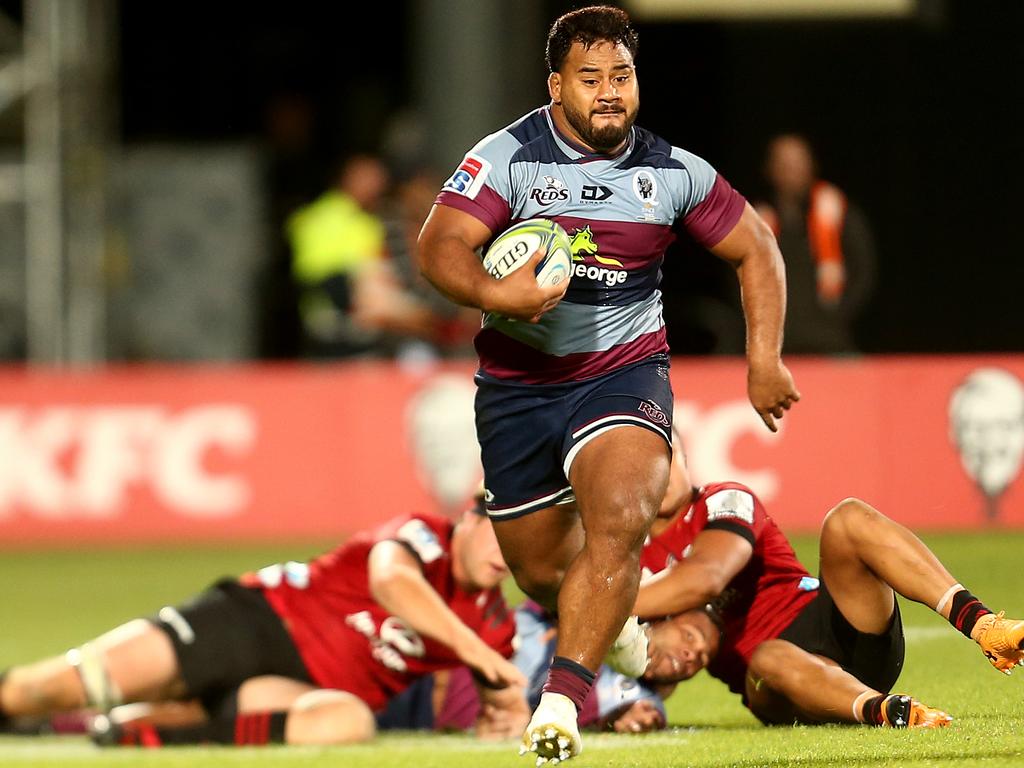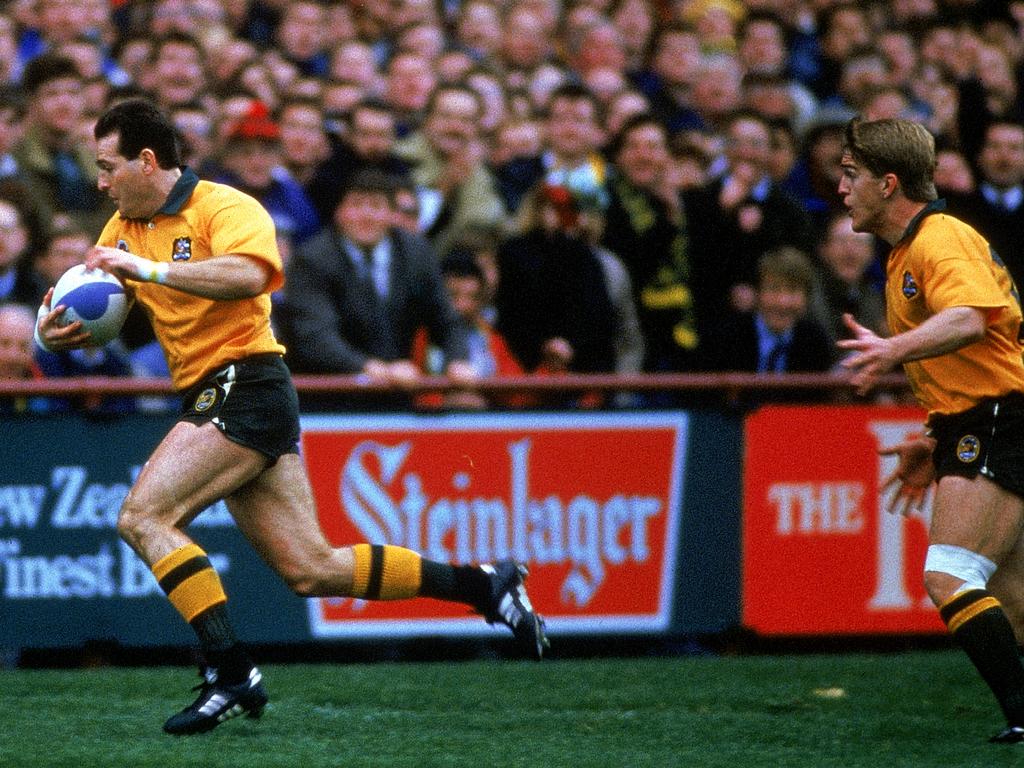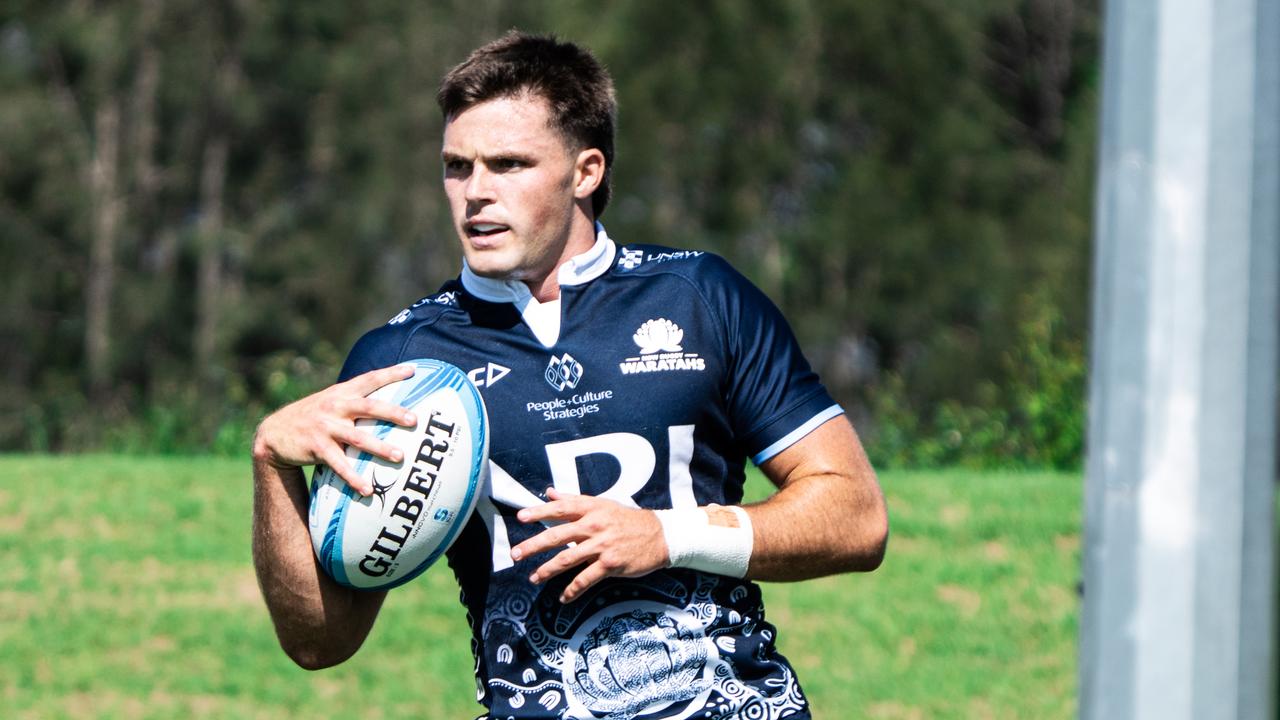Rugby: Can Wallabies coach Dave Rennie avoid the Kiwification curse?
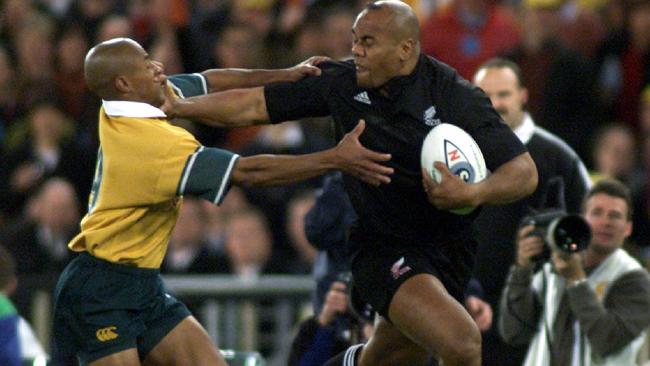
In August 2000, the Wallabies played the All Blacks in Sydney in front of 107,000 people in a Test match that became known as the “game of the century” – a bit of hyperbole, but you get the drift.
The Wallabies had just won the 1999 World Cup, but the Kiwis believed they were the best team in the world. It was a classic heavyweight contest and both teams put on a show that will never be forgotten.
The All Blacks made, literally, a flying start, scoring from their first possession and then carried on scoring two more tries from the next two kick-offs.
They had run in three tries in six minutes and the Wallabies hadn’t touched the ball.
However, once the Wallabies got hold of possession, Steve Larkham and George Gregan stepped up and engineered four tries in response.
After 30 minutes of play, there had been seven tries scored. It was rugby heaven.
The score at half time was 24-all and, in the second half, both teams kept attacking, each scoring two more tries.
With one minute remaining, the Wallabies were up by one point, 35-34.
Then the immortal Jonah Lomu stepped up again and broke Wallaby hearts, outrunning Gregan and Larkham to score in the corner. The All Blacks had won the “game of the century.”
A week or so later, the Wallabies went to Wellington and kicked a penalty goal in extra time to return the favour. The Wallabies won 24-23.
This was a magic period in Australian rugby. Only 20 years ago, the Wallabies held the World Cup, the Bledisloe Cup and the Tri-Nations Cup. Aussie kids had Wallaby heroes to be proud of.
At that time, the thought of allowing the Wallabies to be coached by a Kiwi was outrageous. All that changed when we crashed out of the 2007 World Cup and a New Zealander, Robbie Deans, was appointed Wallaby coach.
To me, that was the unfortunate start of the “Kiwification” of our game.
As the reign of our second Kiwi coach is about to start, it’s worth looking back at the Deans experiment. What can we learn?
To be honest, Deans had a decent win record for the Wallabies in his time as coach, between 2008 and 2013. He won 59 per cent of his 74 Test matches, a pretty healthy win rate.
The biggest issues involved leadership, the captaincy and how he wanted the team to play.
In his time in charge, Deans chewed through four captains.
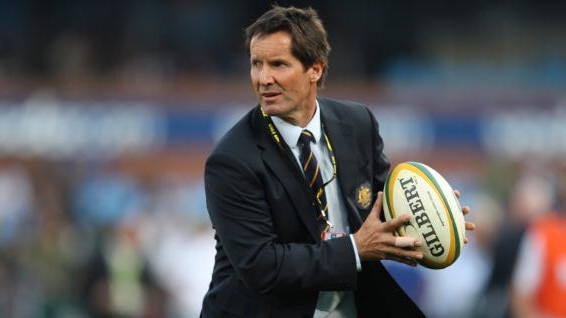
As I wrote last week, “the best teams in history all have one thing common, a great captain”.
I also said, I feel disturbed that we are, “handing over the selection of our next Wallaby captain to a Kiwi”.
Deans started with Stirling Mortlock, then came George Smith, Rocky Elsom and finally, James Horwell.
Most winning Wallaby dynasties are driven by a great captain. In 1984, the Grand Slam Wallabies had Andrew Slack. In 1991, the World Cup winning Wallabies had Nick Farr-Jones and the 1999 winning World Cup team had George Gregan and John Eales.
Deans made a mess of the captaincy issue.
Rennie has not given the incumbent captain, Michael Hooper, the job, just yet. Is he playing funny buggers? Rennie can’t afford to mess this up, or you mess everything up.
To the matter of how the Wallabies should play, Deans made mistakes in this area too.
He couldn’t decide what he wanted from his first two receivers, confusing both the players and the supporters.
Deans had brilliant talent, Quade Cooper, Matt Giteau, James O’Connor and Kurtley Beale. The Wallabies have rarely had any better.
However, one minute he wanted a ball-playing number 12; the next he had flipped to a ball-carrier.
Most Australian backlines like to play flat; Robbie Deans wanted them to play deep.
The talented Cooper was alienated and felt hung out to dry at the 2011 World Cup; Giteau was messed around so much he left for Toulon in 2012.
Then O’Connor was thrown in at the deep end to play number 10 against The Lions in 2013. He, too, was burnt in the wreckage of The Lions series defeat.
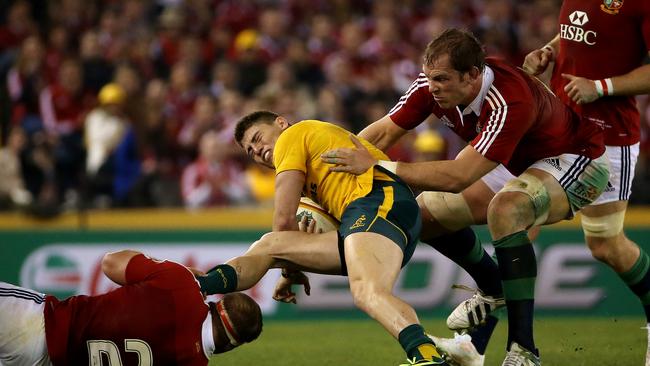
Rennie is no different from any Wallaby coach in that he has a host of talented ball players to choose from. Let’s hope he manages them better than Deans did.
It’s ironic that O’Connor is still around, as a possible starter at number 10. He could be forgiven for thinking “here we go again”.
It’s hard to say how Rennie will try to play with this group of Wallabies. He’s never coached at Test match level and, in all his coaching, he’s very short on success.
Without a Test record to dissect, we can only look at his most recent big games in Europe. It doesn’t make for great reading.
In the 2018-19 European Champions Cup, Rennie’s Glasgow team took a huge beating by Saracens over their two home and away playoff games. These big European matches are close to Test match rugby. The cumulative score over both European Cup games was: Saracens 94, Glasgow 46.
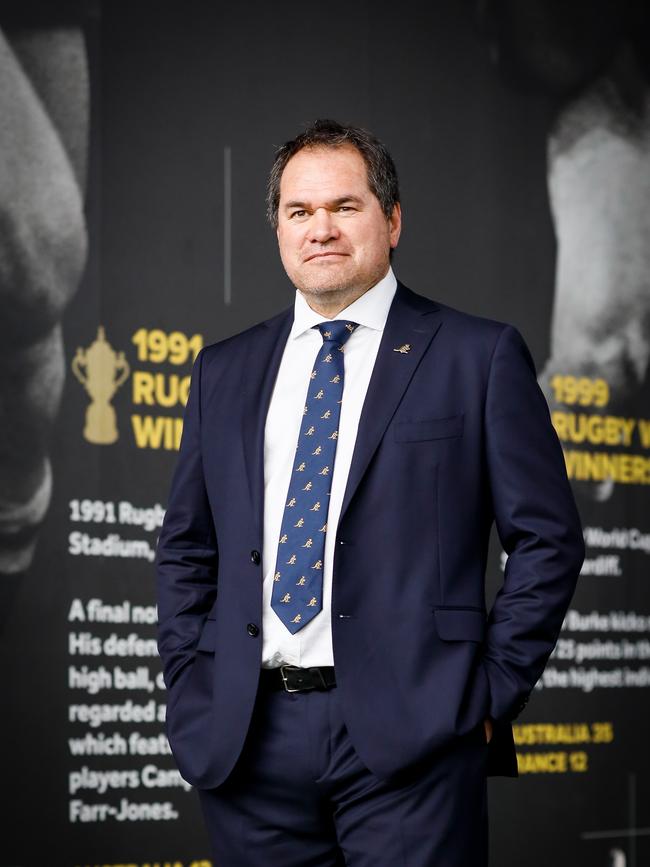
Rennie’s Glasgow team conceded around 50 points a match in the European play-offs. It does not fill you with optimism.
Like Deans, Rennie says he wants to play a high-tempo attacking-style of rugby. The scoreboard suggests, we may need to focus on defence first.
Australians will give Rennie a fair go, but he must understand the only thing Australians will judge him on are results.
I would have one word of advice: Stop telling everyone the kind of game you’re going to play. That will always depend on the opposition, the conditions and the composition of your own side. Winning rugby is more than basketball.
My own view is that we cannot play the kind of attacking rugby we seek to play while we are constantly playing with the ball on the ground. Pick and drive and rucks are destroying Australia’s attacking capacity.
Be that as it may, one truth remains. The last 20 years have not been kind to Australian rugby.
Let’s hope our second Kiwi coach has a better impact on our game than the first.


